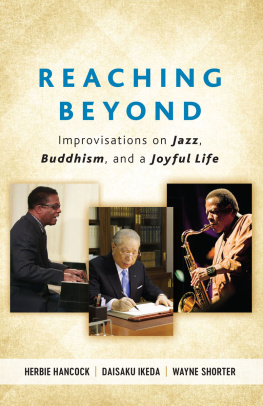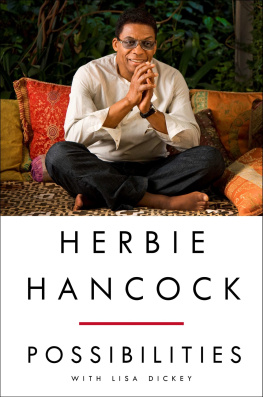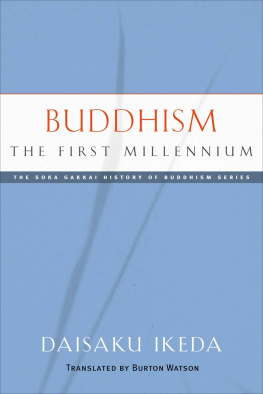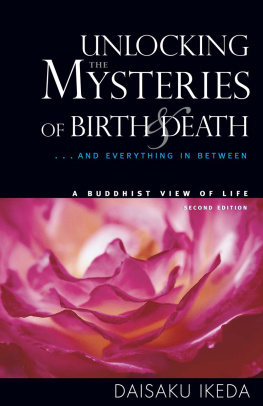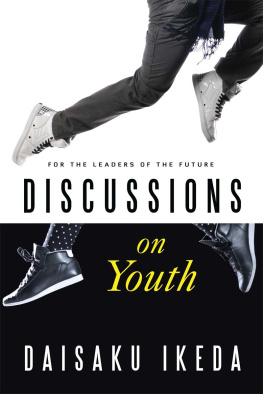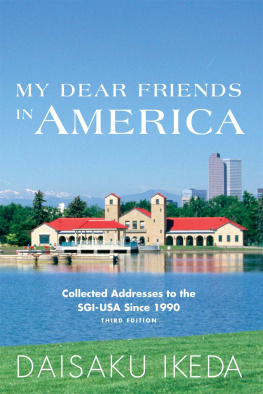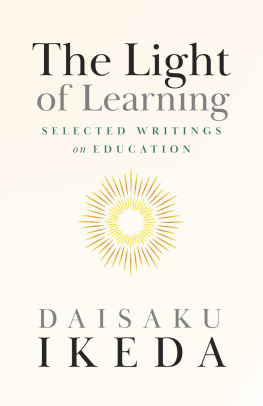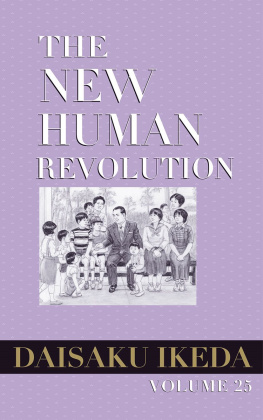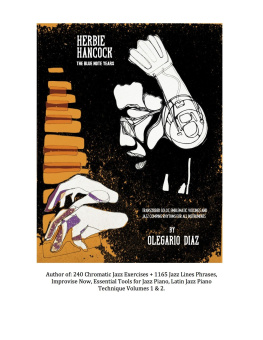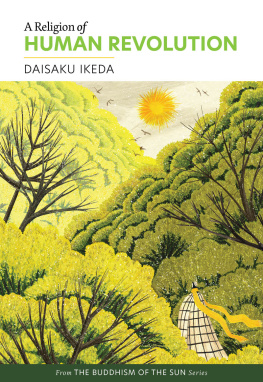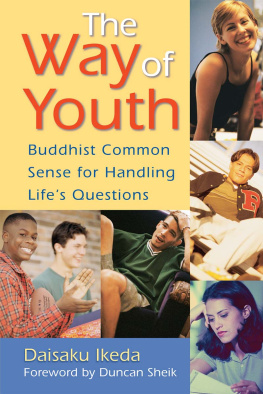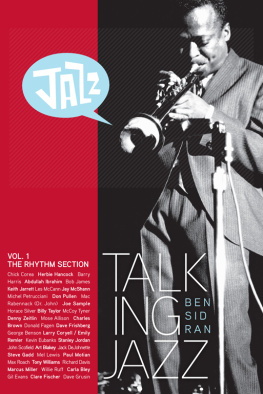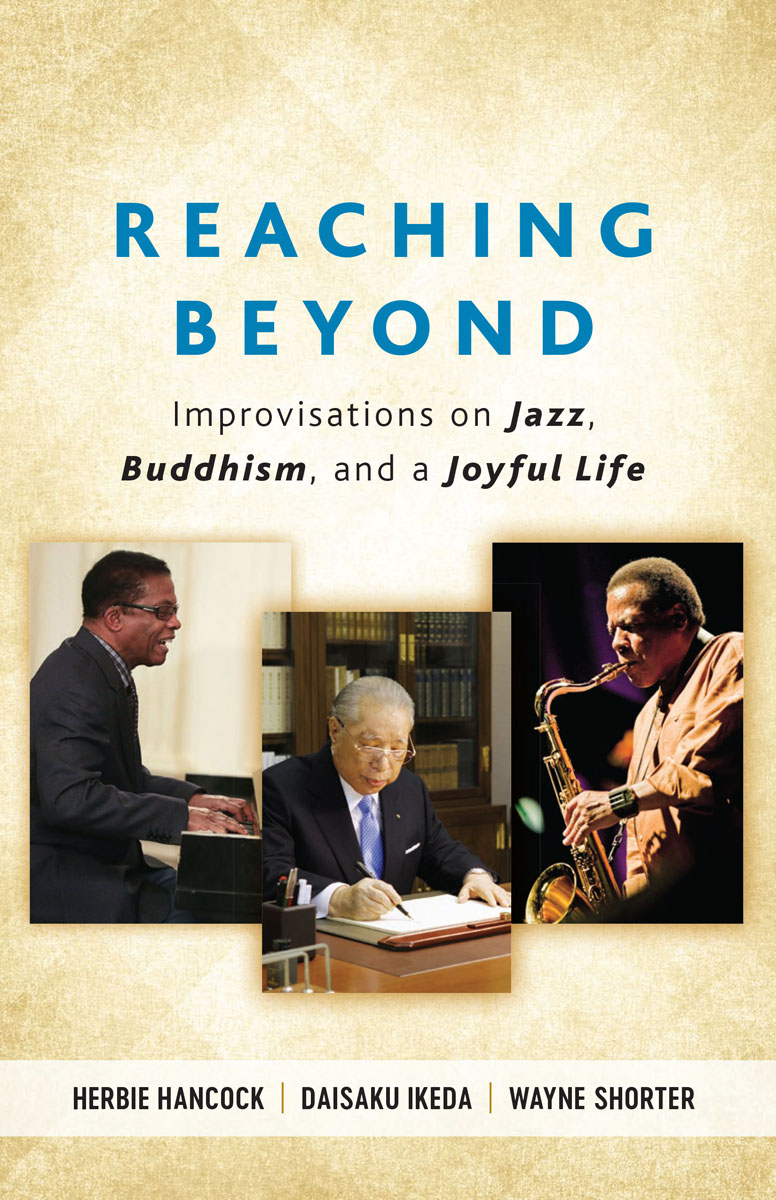

Published by
World Tribune Press
606 Wilshire Blvd.
Santa Monica, CA 90401
In association with
Dialogue Path Press
Ikeda Center for Peace,
Learning, and Dialogue
396 Harvard St.
Cambridge, MA 02138
First edition published January 2, 2017.
2017 by Herbie Hancock, Wayne Shorter,
and the Soka Gakkai All rights reserved.
Printed in the United States of America.
Cover photos: Herbie Hancock Alex Wong/Getty Images
Daiskau Ikeda Seikyo Press
Wayne Shorter David Wolff-Patrick/Getty Images
Design by Lightbourne, Inc.
ISBN: 978-1-944604-05-9
LCCN: 2016958790
10 9 8 7 6 5 4 3 2 1
CONTENTS
EDITORS NOTE
F rom September 2010 through December 2011, the authors serialized their dialogues in the Seikyo Shimbun, the Soka Gakkais daily newspaper in Japan. In 2013, the collected dialogues were edited and published by Seikyo Press in Japan as Jazu to buppo soshite jinsei o kataru (Conversations on Jazz, Buddhism, and Life). This work is a translation of the book, with additional edits for clarity that were approved by the authors.
The citations most commonly used in this book have been abbreviated as follows:
- GZ, page number(s)refers to the Gosho zenshu, the Japanese-language compilation of letters, treatises, essays, and oral teachings of Nichiren Daishonin (Tokyo: Soka Gakkai, 1952).
- LSOC, page number(s)refers to The Lotus Sutra and Its Opening and Closing Sutras, translated by Burton Watson (Tokyo: Soka Gakkai, 2009).
- OTT, page number(s)refers to The Record of the Orally Transmitted Teachings, translated by Burton Watson (Tokyo: Soka Gakkai, 2004).
- WND, page number(s)refers to The Writings of Nichiren Daishonin, vol. 1 (WND-1) (Tokyo: Soka Gakkai, 1999) and vol. 2 (WND-2) (Tokyo: Soka Gakkai, 2006).
ONE
JAZZ, BORN FROM THE PEOPLE
Ikeda: Dialogue is a kind of music created among human spirits. I am eagerly looking forward to creating music of the heart with my two friends, world-renowned jazz musicians Herbie Hancock and Wayne Shorter. You are artists of the first rank. Both of you have won numerous Grammy awards for your outstanding work.
While performing around the world, you have consistently engaged in valuable efforts for peace. Your admirable contributions are a source of great pride to SGI members not only in your homeland of America but around the world.
Hancock: Thank you. I am truly happy to take part in this discussion. For Wayne and me, it is a great honor with special significance to have the chance to talk with you not only about Buddhism but about jazz, the music we have spent many years exploring and introducing to the world.
Shorter: I feel that, you, Mr. Ikeda, are creating a new model of dialogue for the world. The courage you show in promoting dialogue for a new age is an eye-opener for a lot of people.
Ikeda: The American people take deep pride in jazz, which originated in the United States. An American scholar, Jim Garrison of Virginia Tech, once suggested to me that there were four great spiritual treasures of America: the writings of American Renaissance philosopher Ralph Waldo Emerson, the educational philosophy of John Dewey, the civil rights struggle of Dr. Martin Luther King Jr., and jazz, born from the lives of the people.
I have already discussed the first threeEmerson, Dewey, and Kingwith leading experts on their lives and philosophies, and now it is time to discuss jazz. Its been more than fifty years since I first traveled to America, and I feel as if our discussion will be, in a way, a kind of consummation of my long relationship with my friends in the United States.
Today, artists practicing Nichiren Buddhism are active around the world. Through our dialogue, I want to explore with you the bright future prospects of a cultural movement based on Buddhism.
As you have been steadily and sincerely engaged in SGI activities over the years, I am certain that your insights and experiences concerning kosen-rufu our peoples movement for peacewill serve as a source of powerful encouragement to many.
To begin, lets explore what jazz is and how it originated. With the vibrant spirit of youth, I want to learn as much as I can about jazz. I am looking forward to a special lecture from you two on this subject.
Hancock: I feel I am the one receiving special lectures from you, Mr. Ikeda. We have had the great honor of being present at SGI meetings where youve spoken. I have had a chance to see the improvisatory nature of your delivery, which is very much in keeping with the spirit of jazz.
Shorter: When I first heard jazz on the radio, at age fifteen, I felt that the performers were taking chances and striving for perfection at the same time. When I tried to do the same thing in my early years, I discovered that I was not really prepared to improvise truly, in the way the innovators of Bebop, or modern jazz, could. I realized that practice in and of itself does not allow the musician to be true to creative expression in a way that is free of ulterior motives and manipulation.
Ikeda: Improvisationthe ability to create value freely and on the spotrequires absolute commitment and conviction. Nichiren, the Japanese Buddhist thinker and reformer, wrote, As life does not go beyond the moment, the Buddha expounded the blessings that come from a single moment of rejoicing [on hearing the Lotus Sutra] (WND-1, 62).
Right now, at each moment, we can demonstrate wisdom and power brimming with joy. At the same time, one needs intense training and practice to cultivate the ability to improvise successfully. Leading up to a dialogue like this, I carefully study about my partner or partnersboth out of respect for them and as an expression of my sincere desire for meaningful exchange.
After this preparation, the dialogue itself is a matter of playing it by ear. Once a dialogue or musical performance begins, each unfolding moment requires absolute concentration. Buddhism emphasizes the wisdom of the truth that functions in accordance with changing circumstances (OTT, 177). Making use of this wisdom, one strives to create the greatest value possible. This is the marvel of improvisation.
The most important things in dialogue are trust and sympathythe belief that whether you are speaking with a nations leader, a fellow citizen, or someone from a culture or country unfamiliar to you, you can communicate with each other and achieve understanding as human beings. This is the spirit in which I have always met and spoken with people, striving to build bridges of peace and amity.
When I visited China in 1974, for instance, I remember meeting a sweet little girl. She asked me where I had come from, and I replied that I was from Japan and that I had come all that way just to meet her. The girl smiled.
Hancock: Your soulful dialogues have a lot in common with jazz, which depends on dialogue. This concept is quite familiar to jazz musicians; its something we value, something we experience every time we play. Jazz is also a very spiritual music.
The dialogue that happens within the performance is not frivolous or casual. The dialogue embodied in jazz is very serious, even when its playful. In many ways, its a celebration of the joy of life. It is a pure and direct method of communication, a cry issued from the depths of human emotion.
Next page
